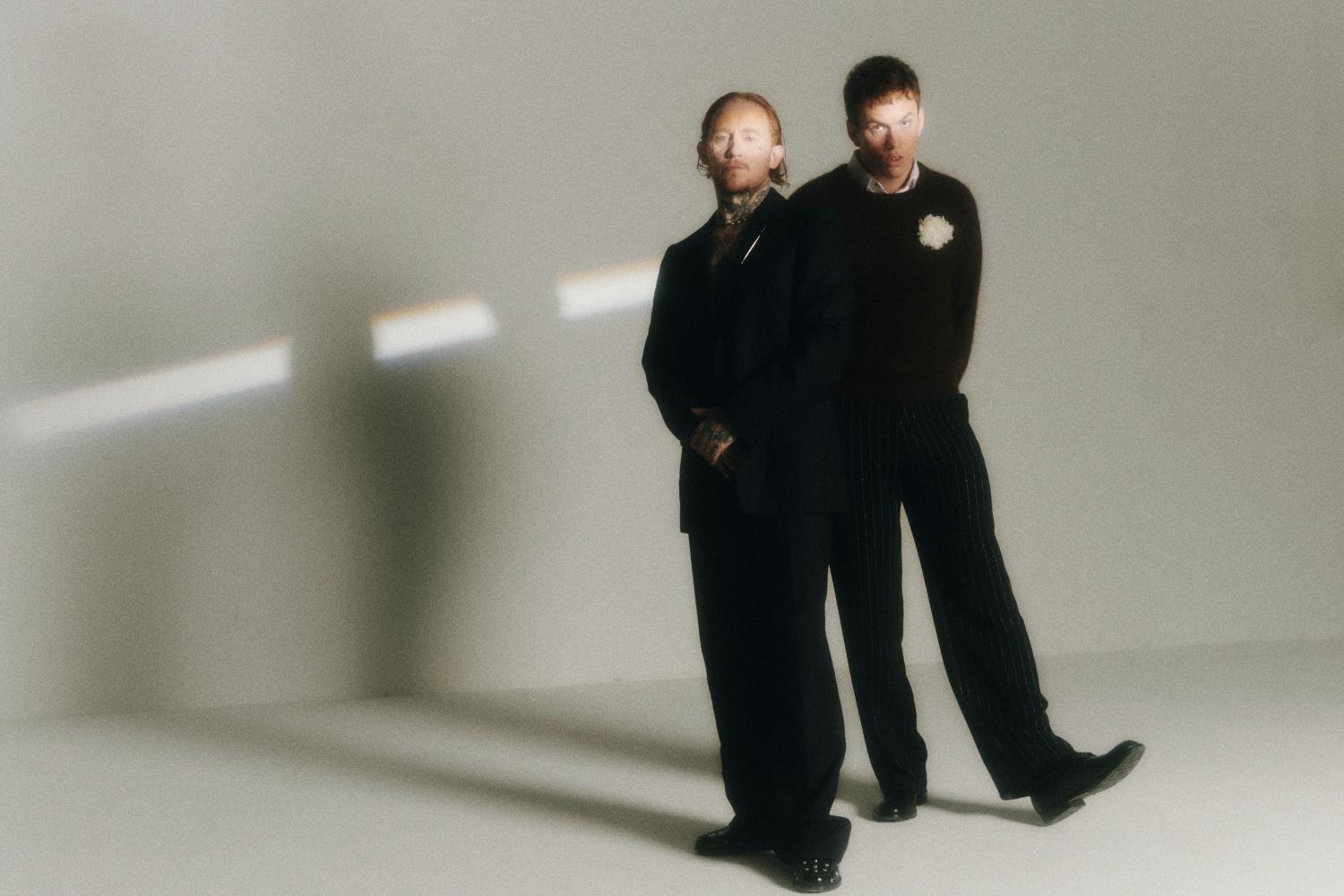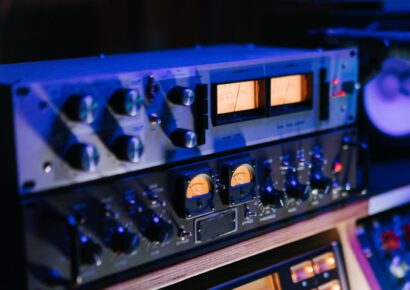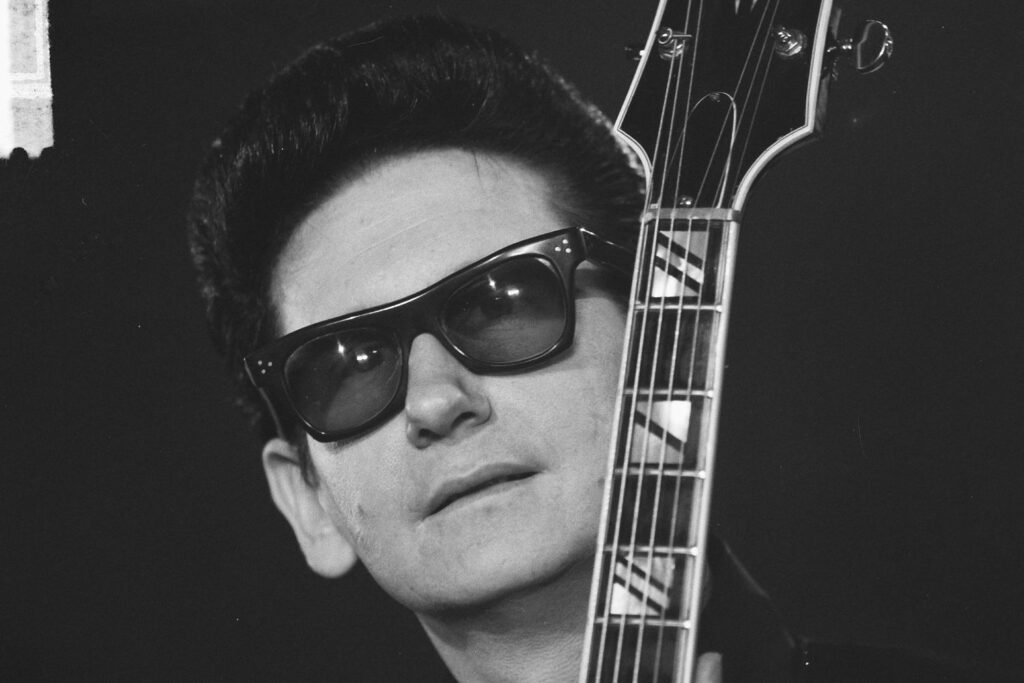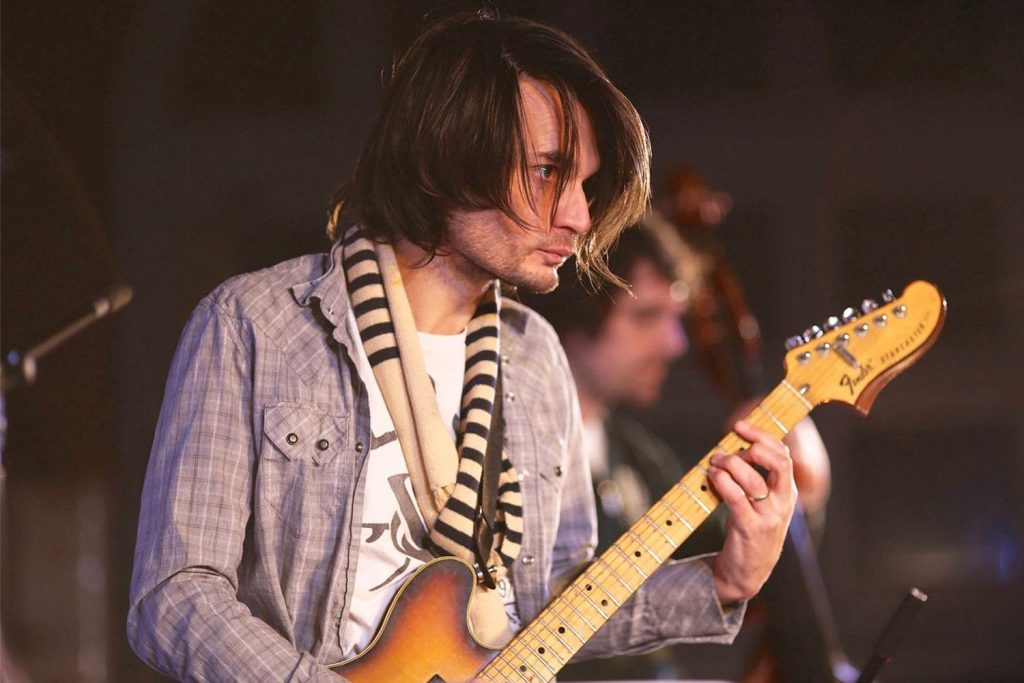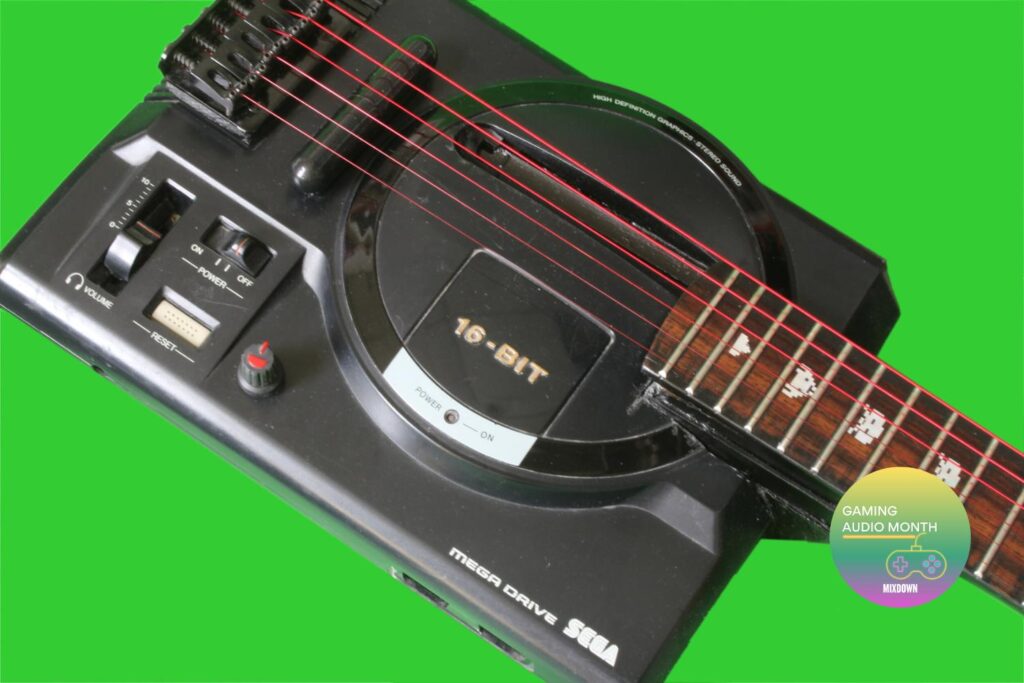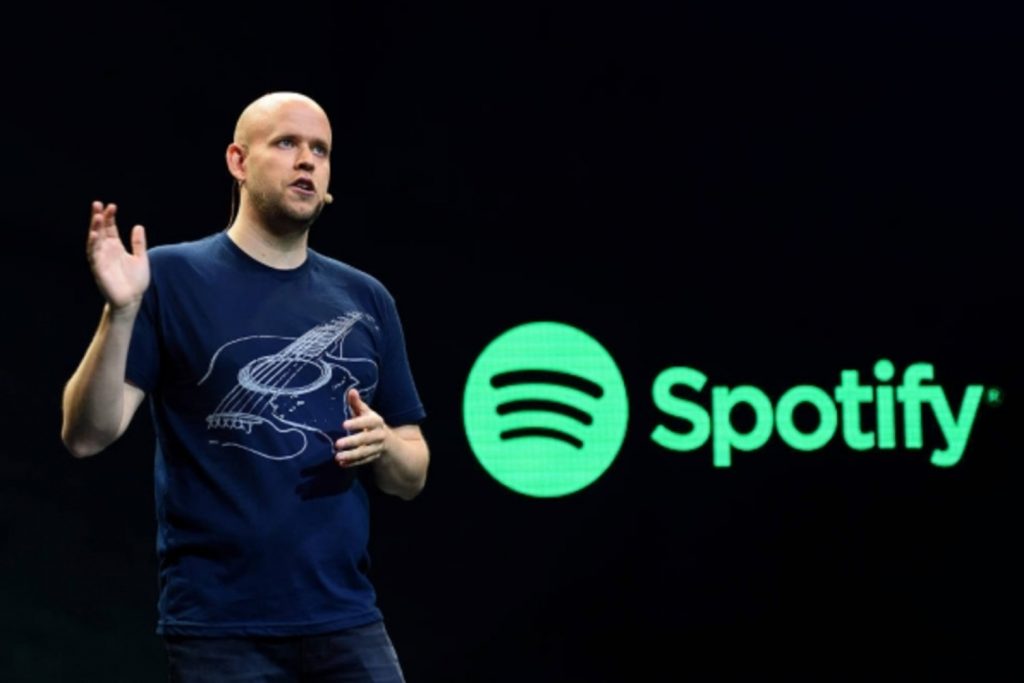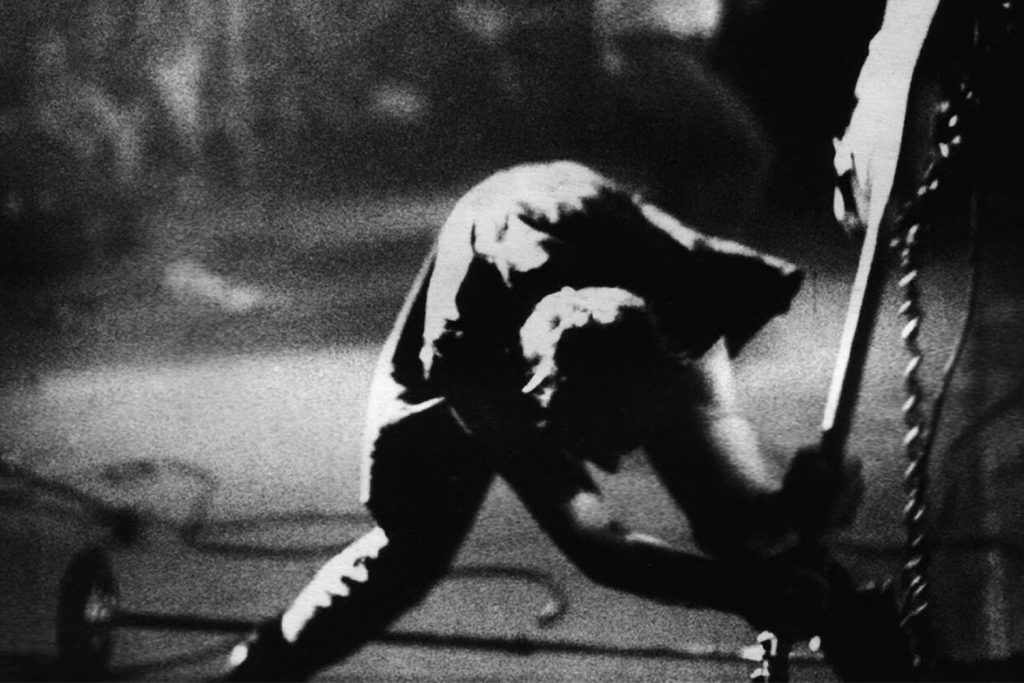Frank Carter & The Rattlesnakes are a band comprised of frontman Frank Carter and guitarist Dean Richardson.
Frank Carter & The Rattlesnakes’ debut record, 2015’s Blossom, was received to huge acclaim, the excitement and energy of the album only being outshone by the raucous and infectious energy of their live shows.
While there was heavy elements on Blossom, the following Frank Carter & The Rattlesnakes records Modern Ruin in 2017 and End of Suffering in 2019 began to break down the barriers to reveal a softer side to the duo, with 2021’s Sticky (produced by Richardson) solidifying them as a uniquely new wave, post punk (albeit still punk) rock band, and 2024’s Dark Rainbow proudly serves to push the envelope further. Combining synths, guitars, drum machines and Carter’s instantly recognisable vocals, Dark Rainbow elevates the band further. We had the chance to chat to Dean “Deano” Richardson ahead of the release.
Read all the latest product & music industry news here.
Dean is sat, smiling politely with an open energy. It’s quite early in London but, as he points out, he has a pot of coffee ready to keep him going. Speaking to the sound of the new album, he begins.
“It’s probably more a case of the songs we chose,” begins Dean, speaking to the evolving sound of the band. “We always write a hell of a lot more than we release, and so the sound of Dark Rainbow, and we feel it’s similar to End of Suffering, there’s always been a lot of that music that comes. But at the same time we write a lot of punk rock, [and] we leaned on the punk stuff to make up the bulk of the record.”
“For this one, I don’t know if it’s just ‘cause it’s your fifth album, or if it’s just where you’re at that time, but when we were making those sort of choices, we just seemed to pick a lot more of the new wave. Not something we really grew up on, but it’s definitely in there.”
I interject here, saying that as an English band, it would be difficult to avoid the new wave influence. He agrees.
“I think so. We’re not particularly super conscious of where we’re going when we write, it’s just a case of we get in a room, with very much a ‘let’s see what happens, let’s see if we’re even going to make something.’”
“Once we see there’s something to be made, we really hustle and get a bit obsessed with it.”
I push this further – are they literally in a jam room with a band and seeing where the songs go?
“Yeah, until the third record [End of Suffering], we had a strict rule of ‘no demoing’. We would just voice note live. But we did find that that kinda got restrictive, in terms of embellishing the sound, I think you can hear it in the [first two] records. There’s so much guitar constantly, there’s no stopping, that’s all I had in the room to contribute.”
We pivot here, Dean explaining that they had a studio set up to record and demo once the songs were written, with tools at their disposal. The songs always began with a sound or idea that inspired them, and then they chased it down. Dean produced Dark Rainbow as well, explaining that while those initial ideas were great and exciting, it’s always important to re-record where needed as things need to be well-tuned and refined, especially once you start to mix, compress and crush the sounds together.
“This time, we recorded as we went but I think we only used a couple of vocals that we felt attached to, and quite a few synths. Obviously they’re DI’d and stuff. Anything mic’d up got re-recorded pretty much.”
Frank Carter & The Rattlesnakes have a backing band, but the writing and demoing process is purely Dean and Frank, explaining he’d slowly amassed enough one shot samples of various drummers to assemble a MIDI kit for demoing – that sounded dangerously good.
“Sometimes it sounds a bit too cool, and I’m like ‘Do we need a drummer?’” he laughs.
“But no, then we went to a studio and recorded drums and that’s when we move from writing into like ‘Okay we’re making a record here.’ And then our bass player will come and record, we’ve got a new guitarist from the last few years, [it was the] first time he recorded with us as well. Quite a lot of us are on it in the end.”
Okay, so we’ve established how Dark Rainbow came about, but I’m curious: with the mountain of songs to choose from, demos, lyrics and ideas spilling out of the duo, where along the process are they choosing the songs on the album?
“Y’know…” Dean trails off a little in thought. “On all the previous records we’ve made, that happens really early.” he starts. “Sometimes we were under pressure for time, like we were touring so much that we knew maybe we had to get the recorded done in this space of time.”
“But on this one, it was pretty open ended, we had nothing booked and we had no external pressures, so we really tried to think not too far ahead until we had a lot of songs.”
“There’s a whole other album that could’ve come out,” he laughs. “We wrote an album that has a certain sound and there was a debate at one point about whether we should stop or carry on. We got to something like 30-something songs, demo’d to a point that they’re finished… and a gazillion half ideas.”
“So with this one, when we’d written that second [idea], we’d just started to become really attached to what was to become Dark Rainbow.”
I want to push this a little – was there a moment that this mountain of songs revealed itself as a Frank Carter & The Rattlesnakes album in Dark Rainbow?
“The moment in the studio, when we went to record drums. We hit this song called “Can I Take You Home?” and it didn’t sound right with the drums we’d did, so we tried this thing of a real old vintage kit, like a mini kit.” he explains. “Just three mics, three drums and we started playing on that and it sounded so good. We were all so excited in the room, this is definitely the sound for this song.”
“But I do remember thinking ‘There’s not another record we’ve made that this sounding drum would’ve been appropriate.’ It’s small and boxy, and not very crisp, just a bit more vintage I guess. But just really right.”
“That’s when I knew while recording, we were definitely about to commit to these being a departure.”
“We did get a bit carried away,” Dean laughs.” there’s a couple songs actually, that we used the mini kit for kick and snare, and then cymbals and toms on the main kit.”
I push the exact models of the mics, but Dean can’t recall. “We didn’t have tonnes of options in the end, we went to this studio called Livingstone Studios, in North London.”
“It’s history is quite indie, like it’s done some things like Bloc Party, Wolf Alice, these were the sorts of artists that have used it. What it’s really known for is this huge drum room, or live room.”
“But the way we worked, was with this engineer called Daniel Moyler who’s been there quite a lot. What he’s settled on, is that you record in the middle room, a bit more modern in terms of its acoustics. Off of that is this huge room, like wood-panelled, 70s and super echoey.”
“That’s [the big room] where recorded the mini kit, and we recorded the main kit in that middle room but mic’d up the big room all the way. So all the way through the process we were getting this big room sound.”
“So, we didn’t [initially] plan to use this mini kit, we’d used all our mics on the main kit.” he laughs. “We essentially used what [mics were] left, but it felt true to the idea. It wasn’t meant to sound too nice.”
“We also had like, we always called it the ‘telephone mic’, and we would just put that on the floor. People would kick it as they walk past, it just stayed there. The position of that was sort of irrelevant, which I always found quite stressful. In my head I always thought …”
I interject, laughing, feeling the stress as well. “There’s something about the phase!” Dean laughs and agrees.
To close, Dean explains that Livingstone Studios had a real plate reverb. “That was felt like a significant thing, I think that’s on every song on drums. It just mixed at different levels, but it helps to bring this world together, ‘cause the songs are quite varied.”
“I guess a lot of the ethos was ‘Whatever is exciting’, because there was no plan to find a plate.” Dean chuckles. “But when there’s one there ‘Let’s get that on.’”
Keep up with the band here.
